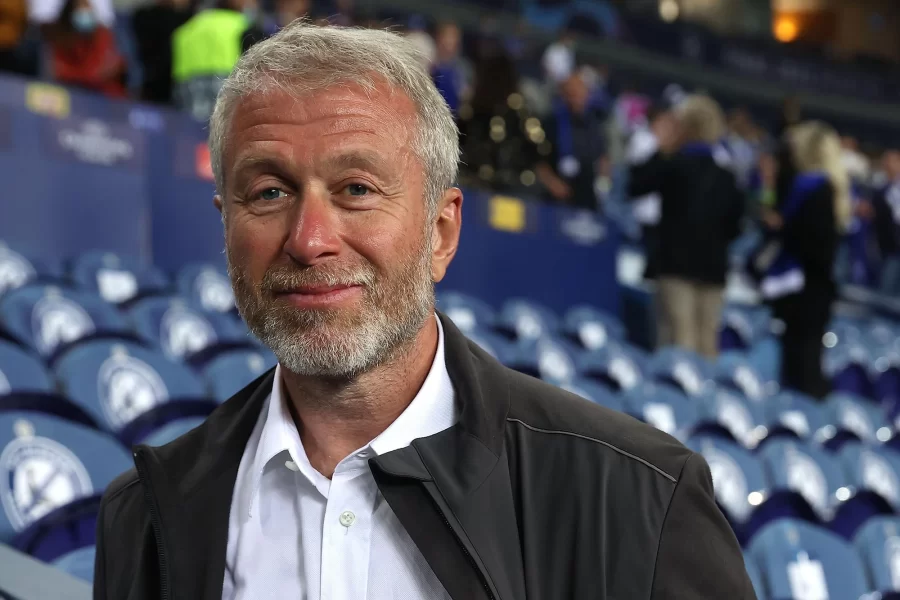The Extents of War: Roman Abramovich
It was not too long ago when the world awoke to news of the Russian declaration of war against Ukraine. While such an event had been anticipated for some time, seeing the images and video of the invasion across the TV screen was still unnerving, to say the least. The conflict is a chilling reminder of the widespread consequences of war and the complexity of our global economy. While Russia itself is not hugely influential on a global economic stage, its assortment of oligarchs—most of whom are allegedly connected to the Russian government and Putin—are highly influential both at home and abroad. An oligarch is defined as a politically influential business leader; such people are known to occupy places in Putin’s inner circle in what can only be described as a quid pro quo relationship. Roman Abramovich, perhaps the most well known of the Oligarchs, has felt the economic repercussions of the invasion harder than most.
Known as the owner of Chelsea, one of the most influential clubs in world football, Abramovich has seen the headlines a lot more in the past weeks than he has during his entire stint as owner. Mr. Abramovich made his fortune after the collapse of the Soviet Union, where industries that had been owned by the government were privatized. With help from his business partner, Boris Berezovsky, he gained control of a company called Sibneft through allegedly corrupt means in an auction. The company was a collection of state owned oil refineries, production units, and other oil facilities. Abramovich and Berezovsky each paid around $100 million for the company, a deal which was apparently far below its market value. Abramovich sold his stakes in the company (about 75%) for approximately $13 billion to the Russian government in September 2005. The company is now part of a larger Gazprom, one of the largest natural gas companies in the world. Mr. Abramovich had connections with former President Boris Yeltsen and is still close with President Putin, which provides him with an elevated status in the Russian business realm.
In 2003, Abramovich made what would become his most famous purchase: buying Chelsea F.C for a total of 140 million pounds, or $182 million. At the time, the club was as successful as it had ever been, so Abramovich swooped in at the perfect time. The club was in pole position for new ownership, since the financial support for the club did not match the level of success it was enjoying. The consequential investment was reflected clearly in the team’s results, particularly after head coach José Mourinho was recruited, bringing 7 pieces of hardware to the London-based club, three of which were league titles.
While Mourinho’s hiring and subsequent achievements were indicative of Abramovich’s financial influence, the club would become known for its impatience with coaches, tearing through 13 coaches since the oligarch purchased the club some 19 years ago. However, the billionaire’s deep pockets have undoubtedly had a direct impact on the franchise, with Chelsea now a global sporting mogul and the most successful team in the UK since the turn of the century.
In light of the recent events, Abramovich has not been able to stray away from the political realm as usual, making for a dramatic couple of days for Chelsea and football fans across the globe. Perhaps the best (and arguably only) way to describe the events that transpired after President Putin decided to invade Ukraine is unexpected and confusing. Initially, the Chelsea owner announced he would be “giving trustees of Chelsea’s charitable foundation the stewardship and care of Chelsea FC.” However, the term “stewardship” holds no actual legal meaning, so it seemed that Abramovich was trying to avoid the political firestorm caused by the invasion without making any actual commitment.
However, it was not much later that the world found out that Abramovich was planning on selling the club, claiming that such a move was “in the best interest of the club, the fans, the employees, as well as the club’s sponsors and partners.” Surprisingly, he also mentioned that the proceeds from the sale would go to a foundation for the war in Ukraine. His rash announcement was not destined to happen, as the British government sanctioned him. The sanctions were extensive and severe, essentially preventing him from living in the UK. Unfortunately, by extension, Chelsea as a club can not make any more money until a new owner is confirmed. This meant that the club was forced to close its store, which distributes merchandise across the globe, its food stands at the stadium, and cease its ticket sales for non-season ticket holders. The UK government is overseeing the sale of the club, so the new owner will not be as politically controversial, but there is a small window before the Blues fall into financial ruin.
Many fans took to social media to express their sour feelings about the events. Regarding football, Abramovich was thought of as one of the best owners in world football, having overseen a period of success most clubs could only dream of. Many Chelsea fans are anxiously awaiting news of a new owner, as it will be difficult to find a UK-approved buyer with pockets as deep as Mr. Abramovich’s. If the new owner is not as flexible with his/her cash, the club might be facing a future much different than the past couple decades. Furthermore, with the summer transfer window approaching with every passing day, the club is facing a potential mass exodus of players. Regardless, the saga will be one to keep an eye on the next couple months, both in football and politics.

Paolo, a current senior, is looking forward to his third year writing for the Banner, this time as a section editor. Outside of the Banner, Paolo is the...


